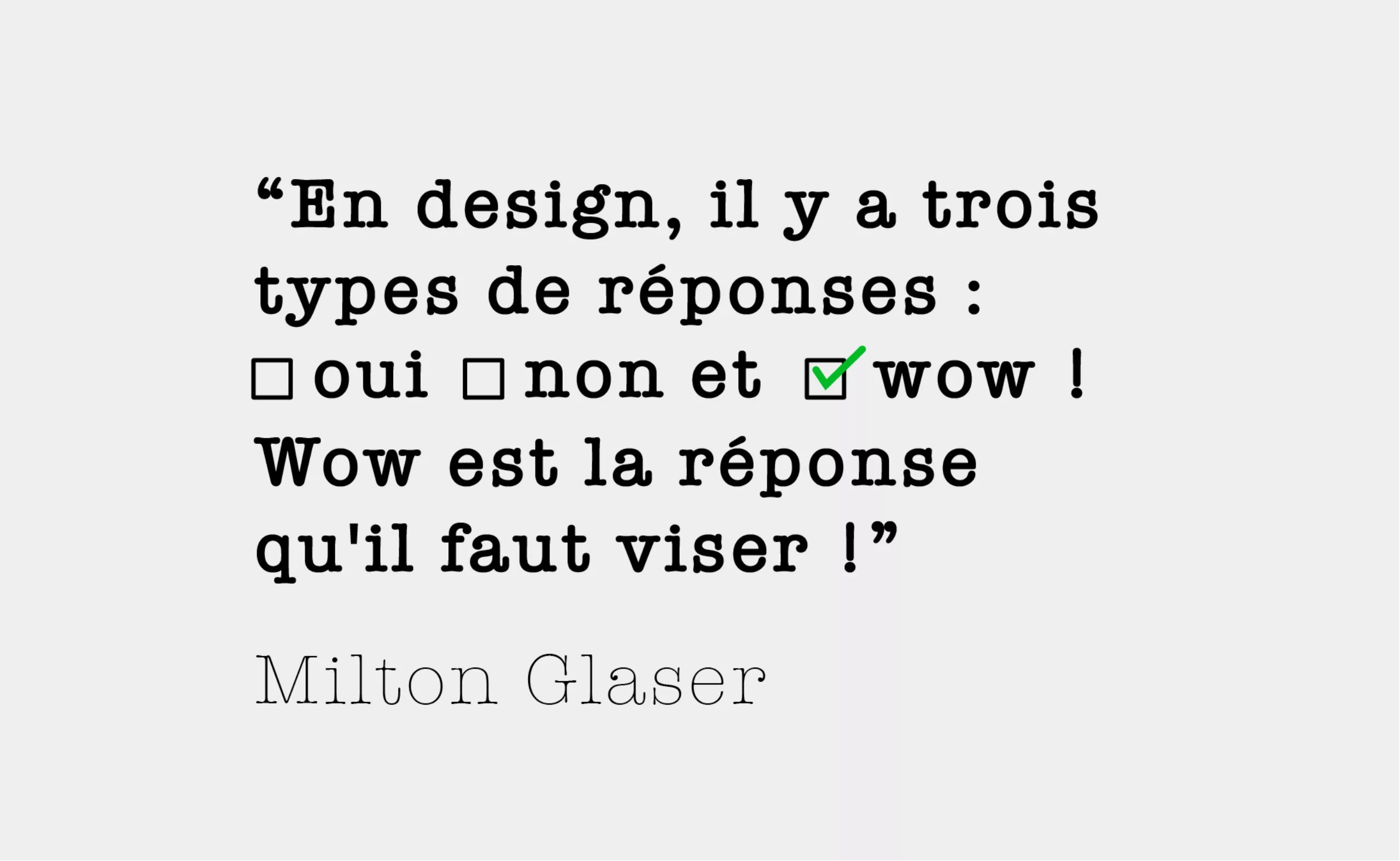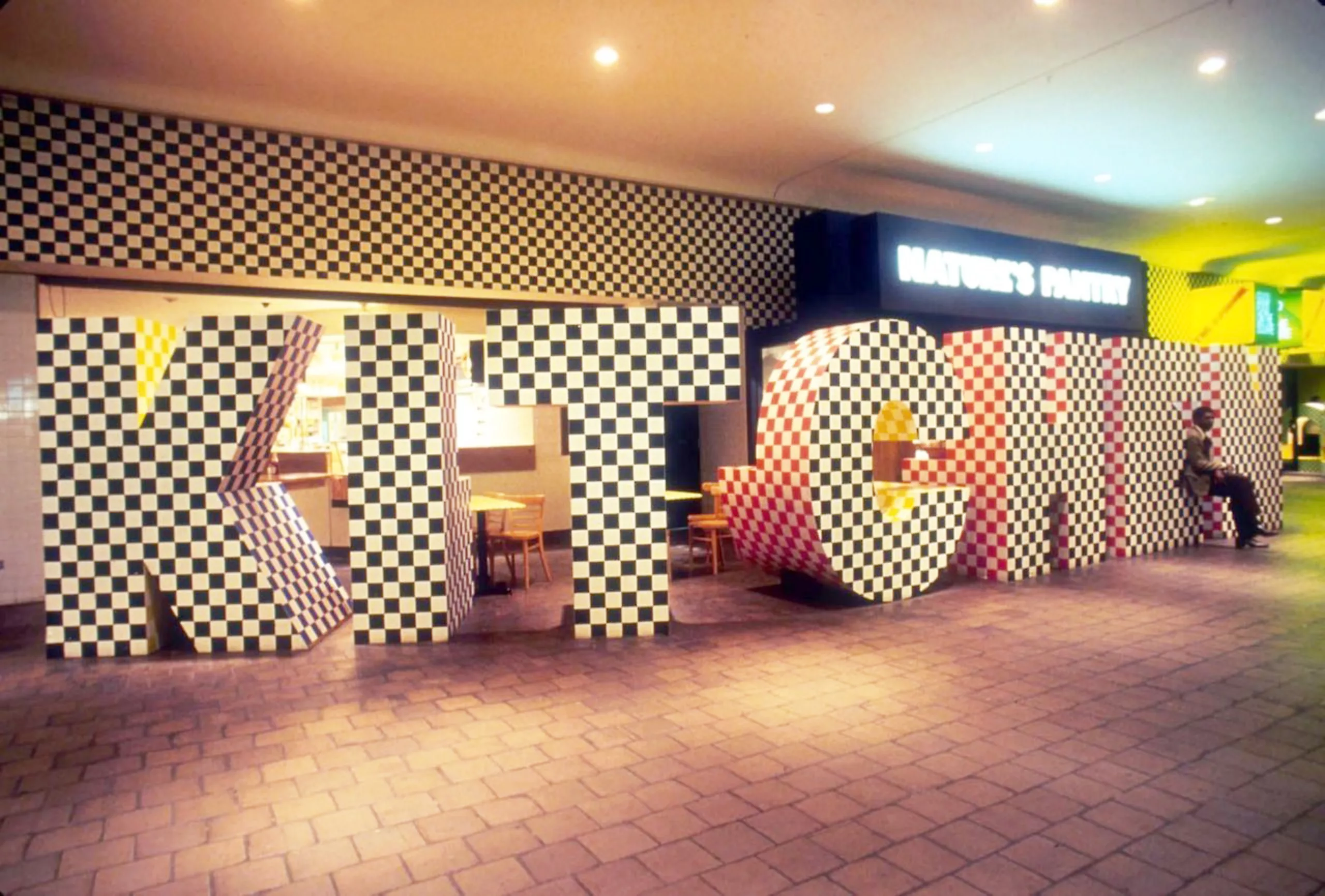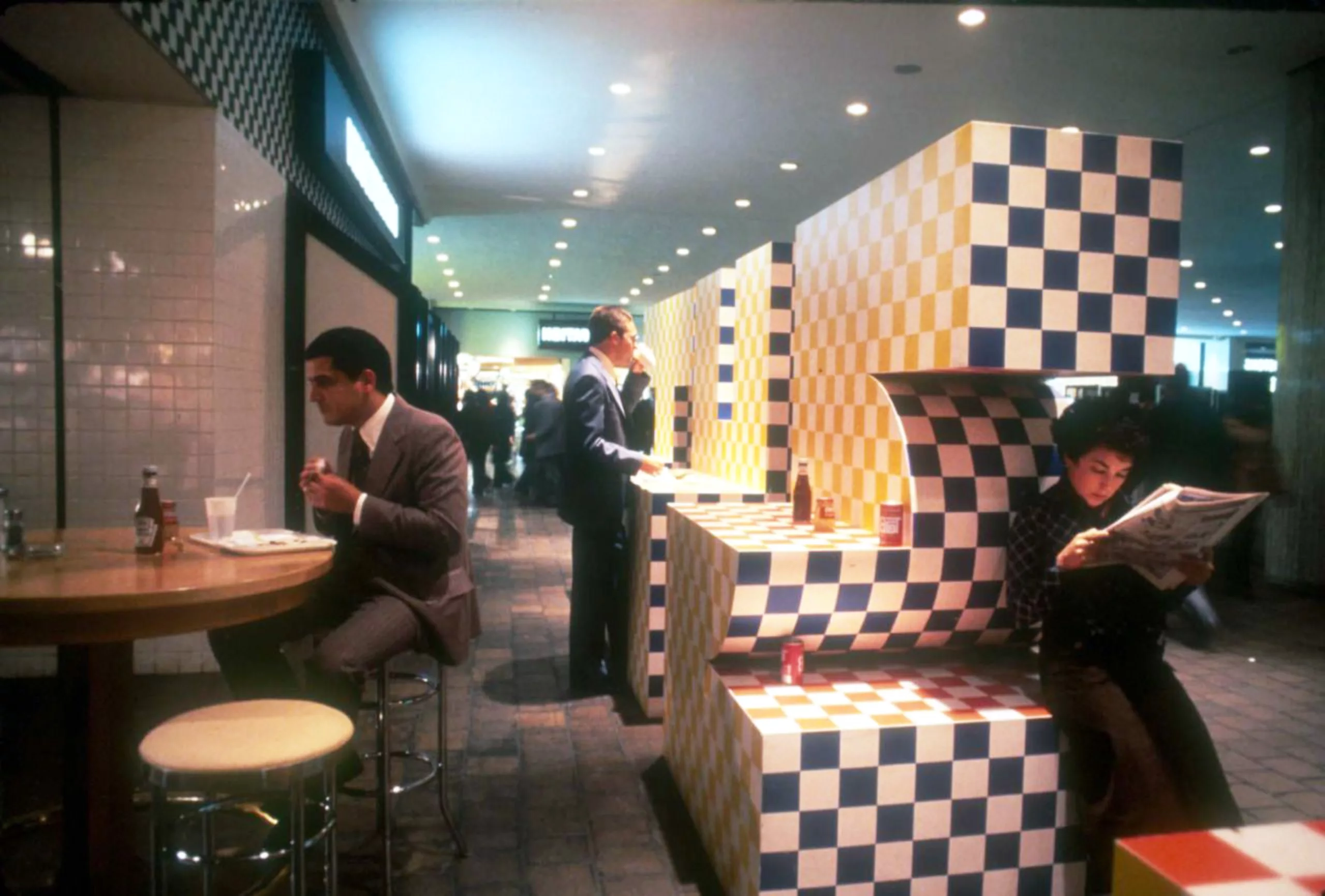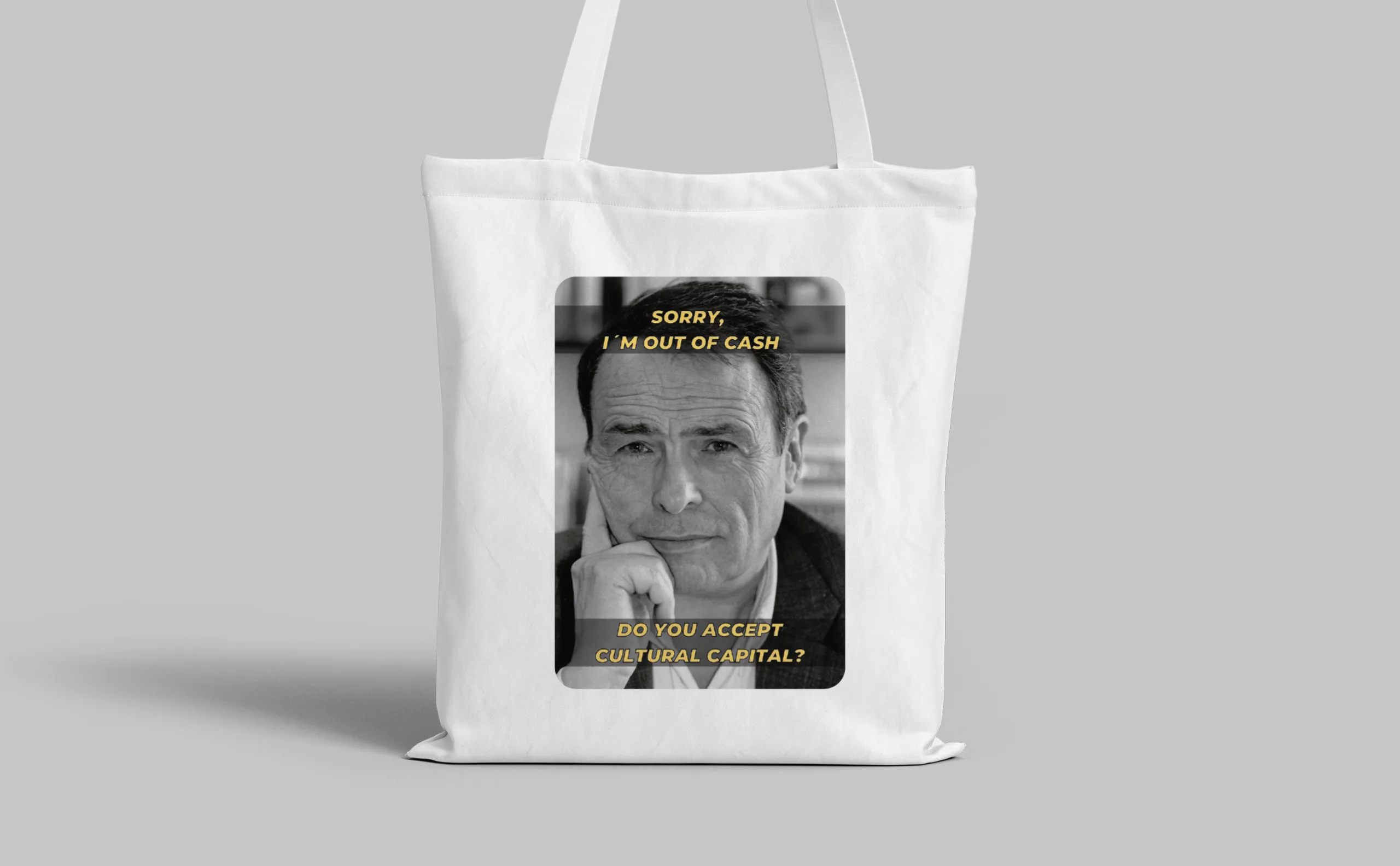We ❤️ Milton Glaser !
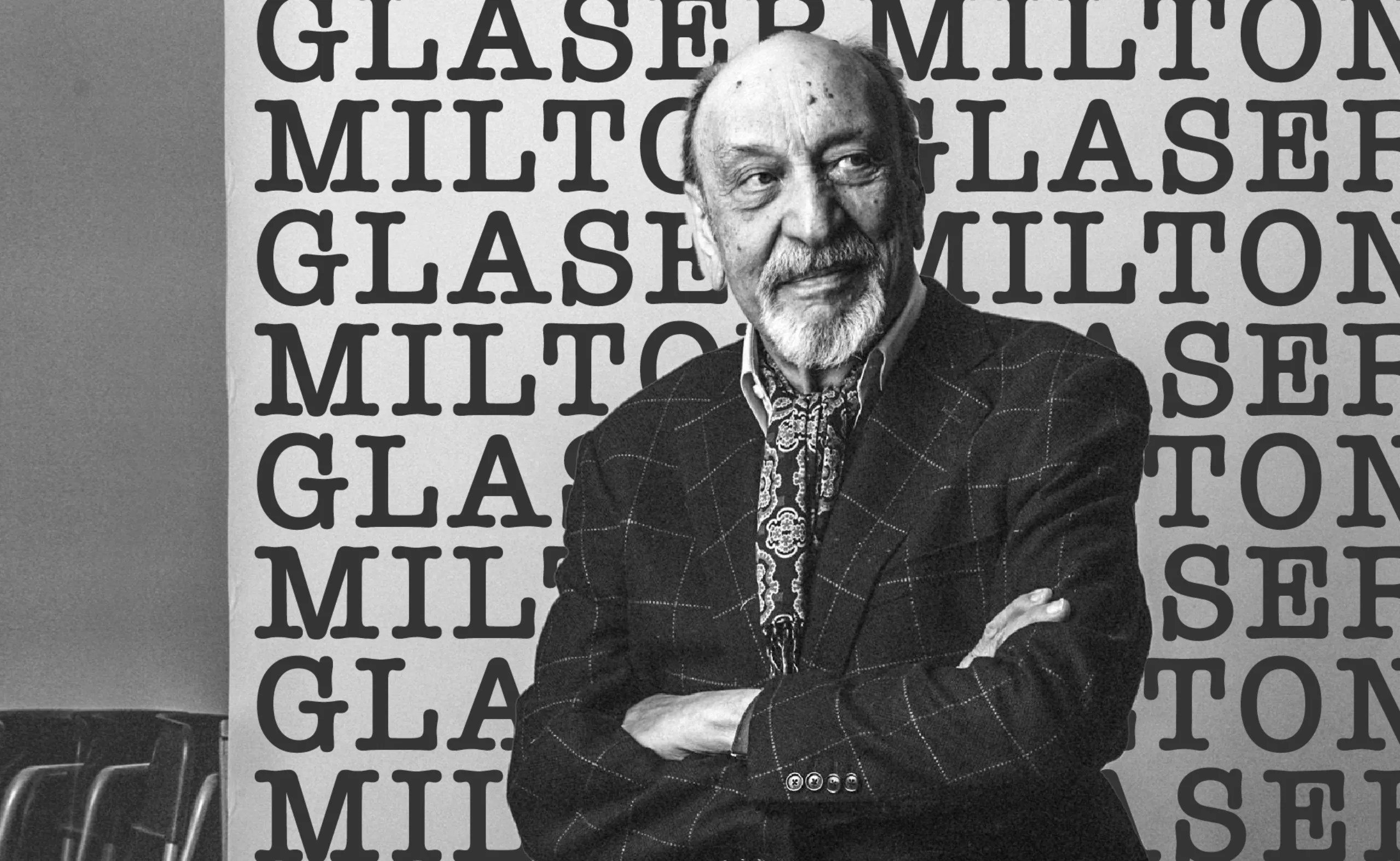
Born June 26, 1929 in New York City, Milton Glaser died on June 26, 2020, on his 91st birthday. The dial of his life closes its stopwatch with this ultimate roguish trick. In the meantime, he will have given the 70s and 80s a happy and colourful face and New York a reason to be loved. His work reflects the Bronx where he was born : vibrant and colourful.
Among his most famous creations, true icons of design, are the logo “I ❤️ NY” and the cover of Bob Dylan’s best-of featuring the singer’s profile with psychedelic hair. Let’s take a look at the story of a very, very big name in American design.
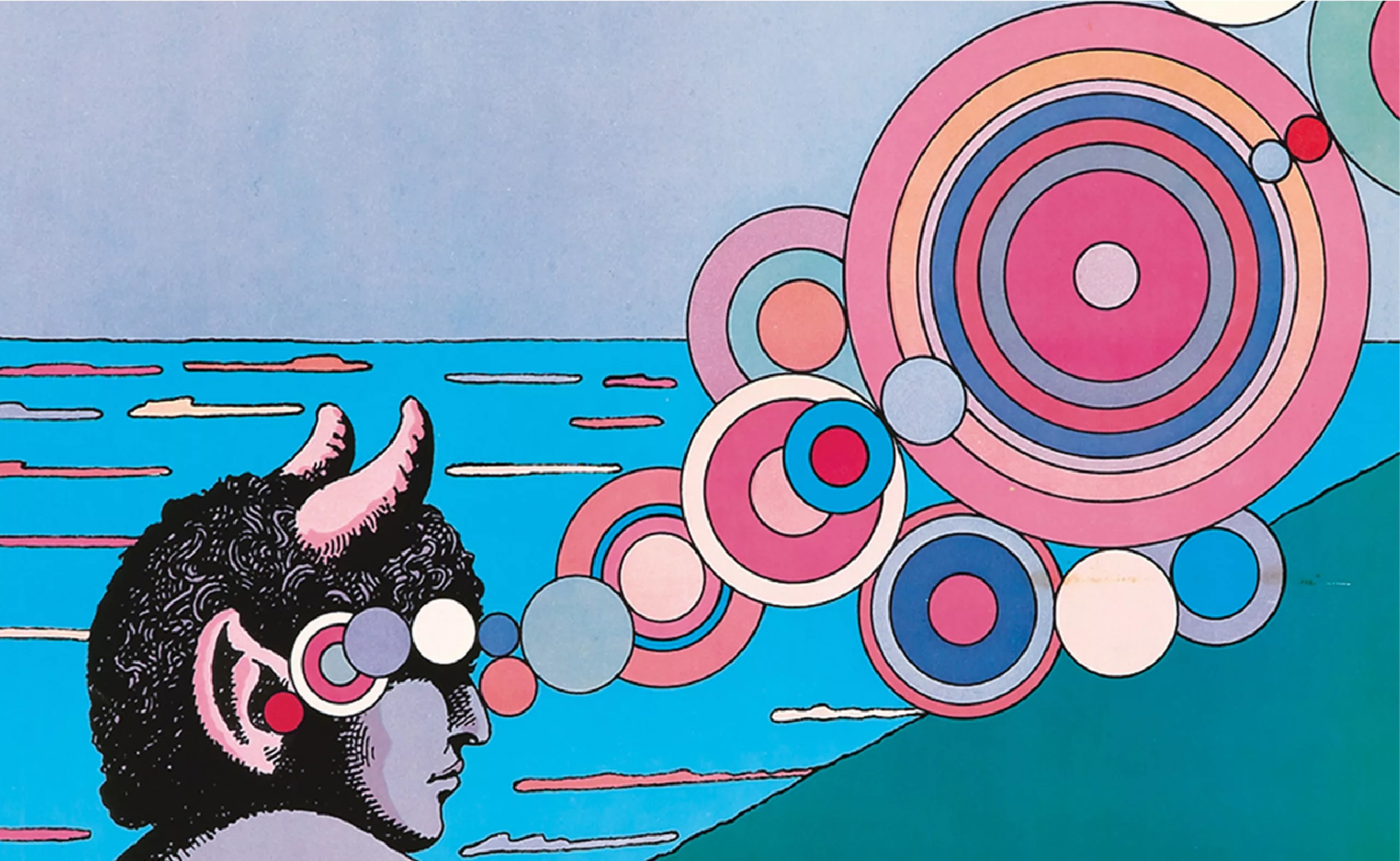
The Pushpin studio
In 1950, even before graduating from the Cooper Union Art School in New York, Milton Glaser, with Reynold Ruffins, Seymour Chwast and Edward Sorel, founded their first studio. They were barely 20 years old. In fact, the name of their first adventure was “Design Plus”, but soon went bankrupt. From this failure, the small group bounced back in 1954 with the “Pushpin Studios”, having a state of mind filled with an overflowing curiosity, an eclectic visual culture, and an infallible irreverence. All-rounder, trinket hunter, painting lover, Milton Glaser had a fondness for the decorative art of William Morris, the Surrealists, Monet, Picasso and the Polish graphic school.
“Picasso showed me that you can change your style anytime, because style is only a tool, not an end”.
At Pushpin studio, as throughout his life, eclecticism was a religion for Milton. It’s even a provocation towards the Swiss graphic school, whose style was taking off internationally in the early 60s. Swiss modernism was looking for universalism. Milton’s American post-modernism was looking for singularity. His entire work is confusing, crazy, risky, sublime, uneven, and deeply sincere.
To promote their work, the studio began printing a small magazine called Pushpin Almanack, which they distributed to all the advertising agencies in the area. It was a small collection of their creative know-how that they left as a business card.
However, although they approached the advertising agencies, at that time they did not have a very strong sense of commercial orders. They even handled such orders carelessly. At the time, you could hear them say, “The difference between art and commerce is simple. Art is when it’s good work. Commerce is when it is bad work”. The tone was set. The revolution of 1968 was being prepared.
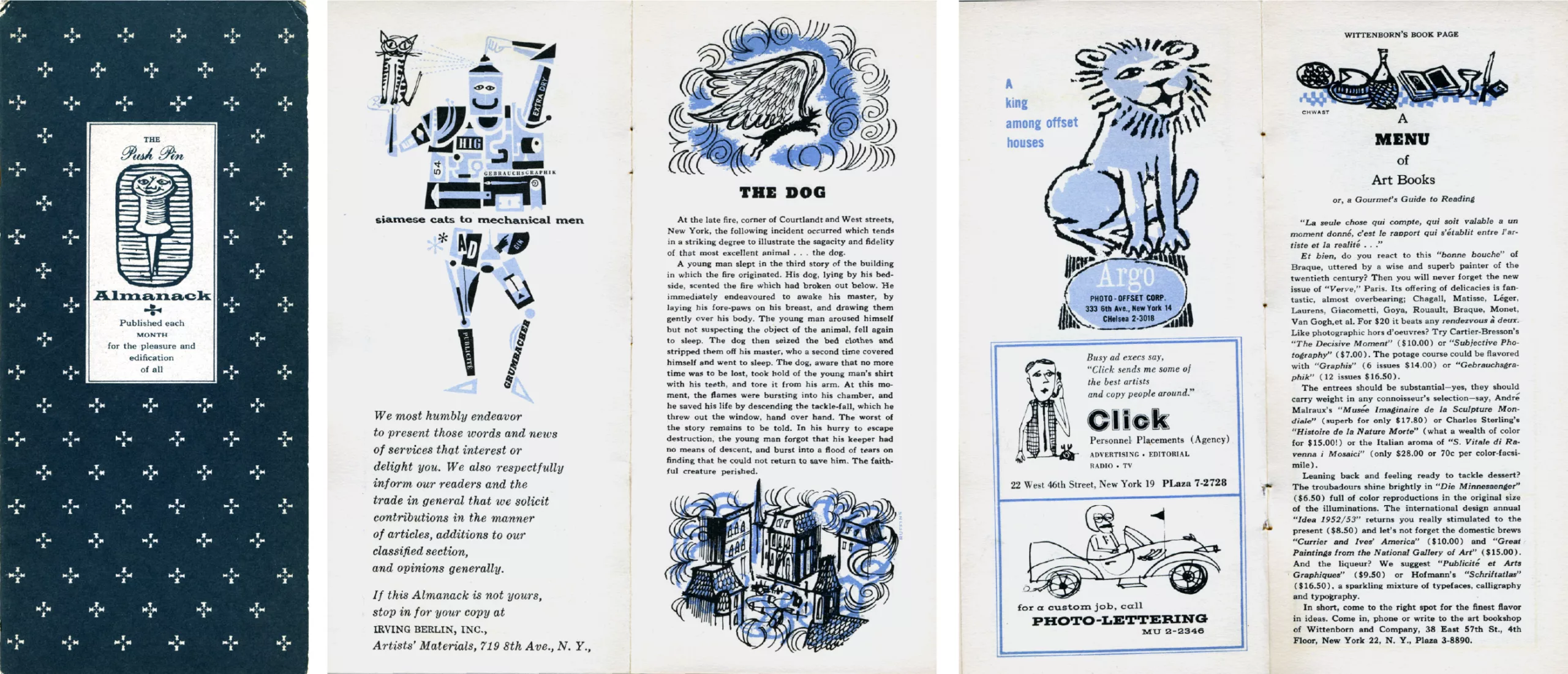
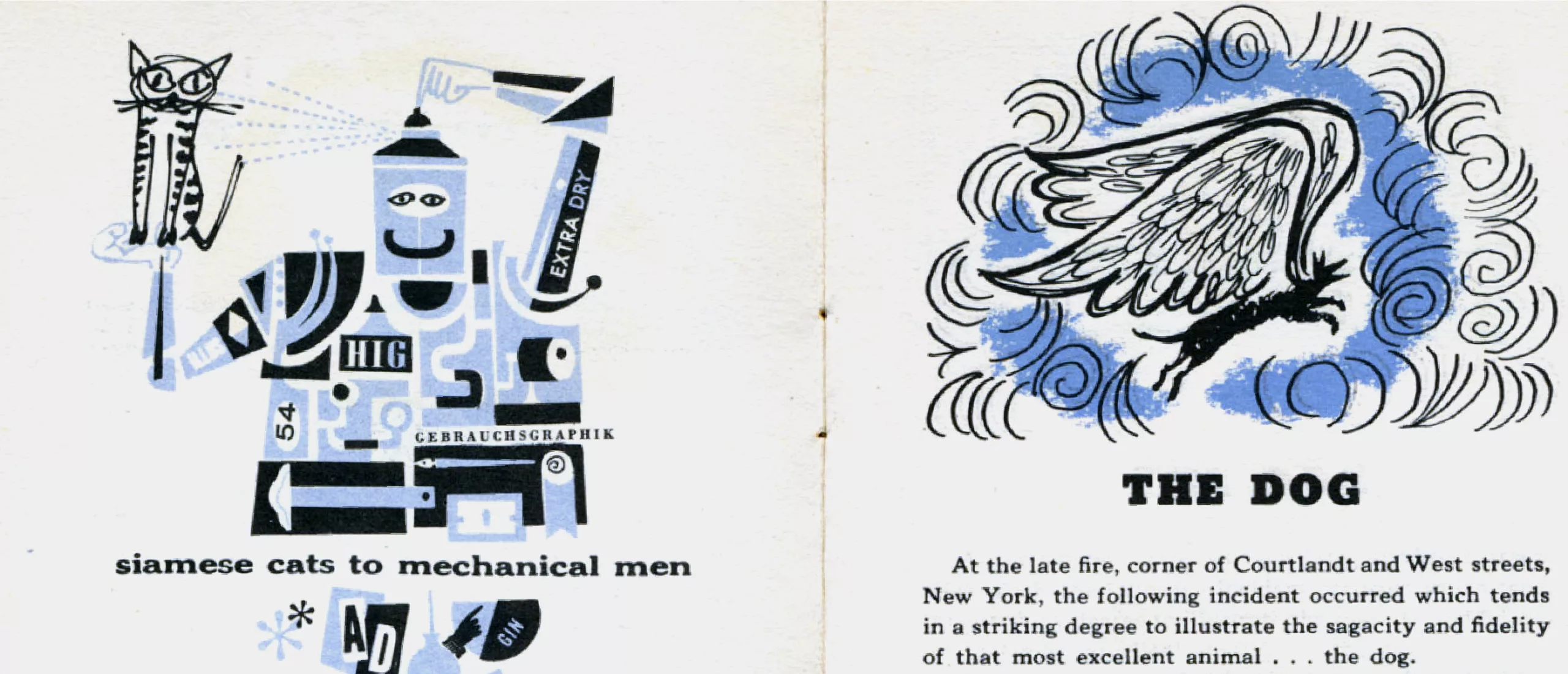
Pushpin Almancks quickly became a more ambitious publication, Pushpin Monthly Graphic. Self publishing well ahead of our time. Soon their colourful baroque style, made of deliberate influences, is being copied. The Beatles’ Yellow Submarine video clip, designed by Heinz Edelmann, is a direct follow-up of their work.
But Milton Glaser himself is a great popular culture copycat. His work includes regular borrowings, traced images and reworked paintings. At the time, their only pleasure was to work like a bunch of friends, without hierarchy, without constraints on creativity. They talked about art, politics, philosophy and music. It was the “Bronx” in the studio.
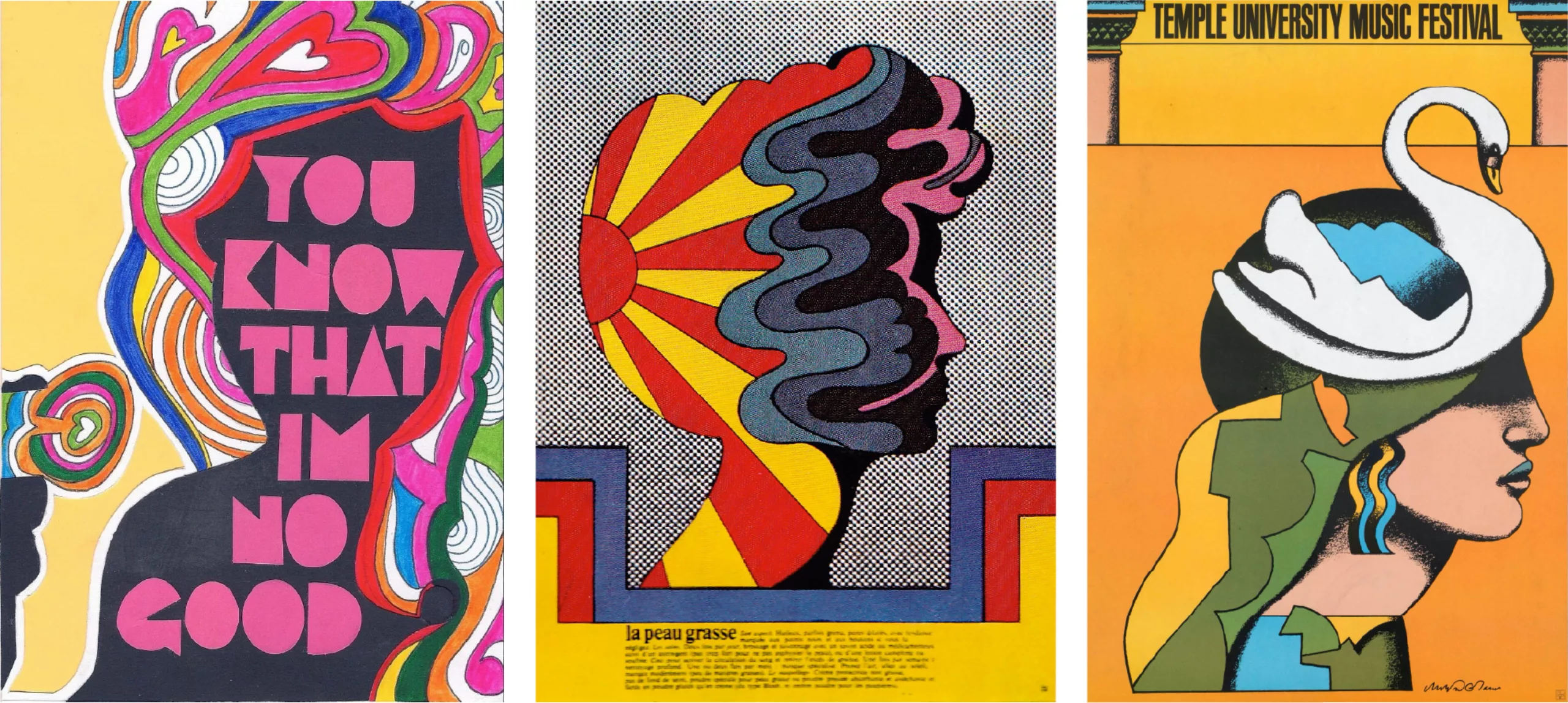
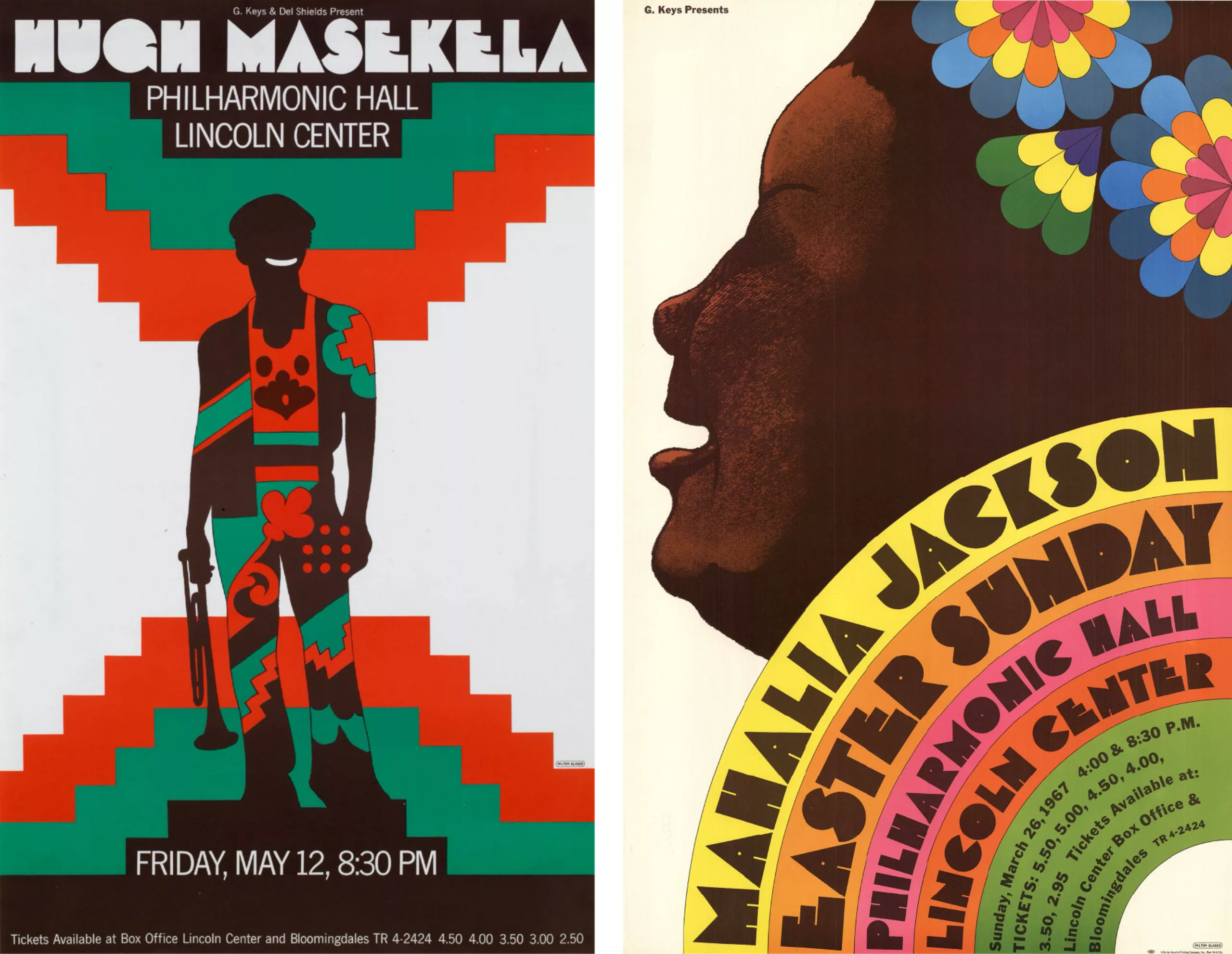
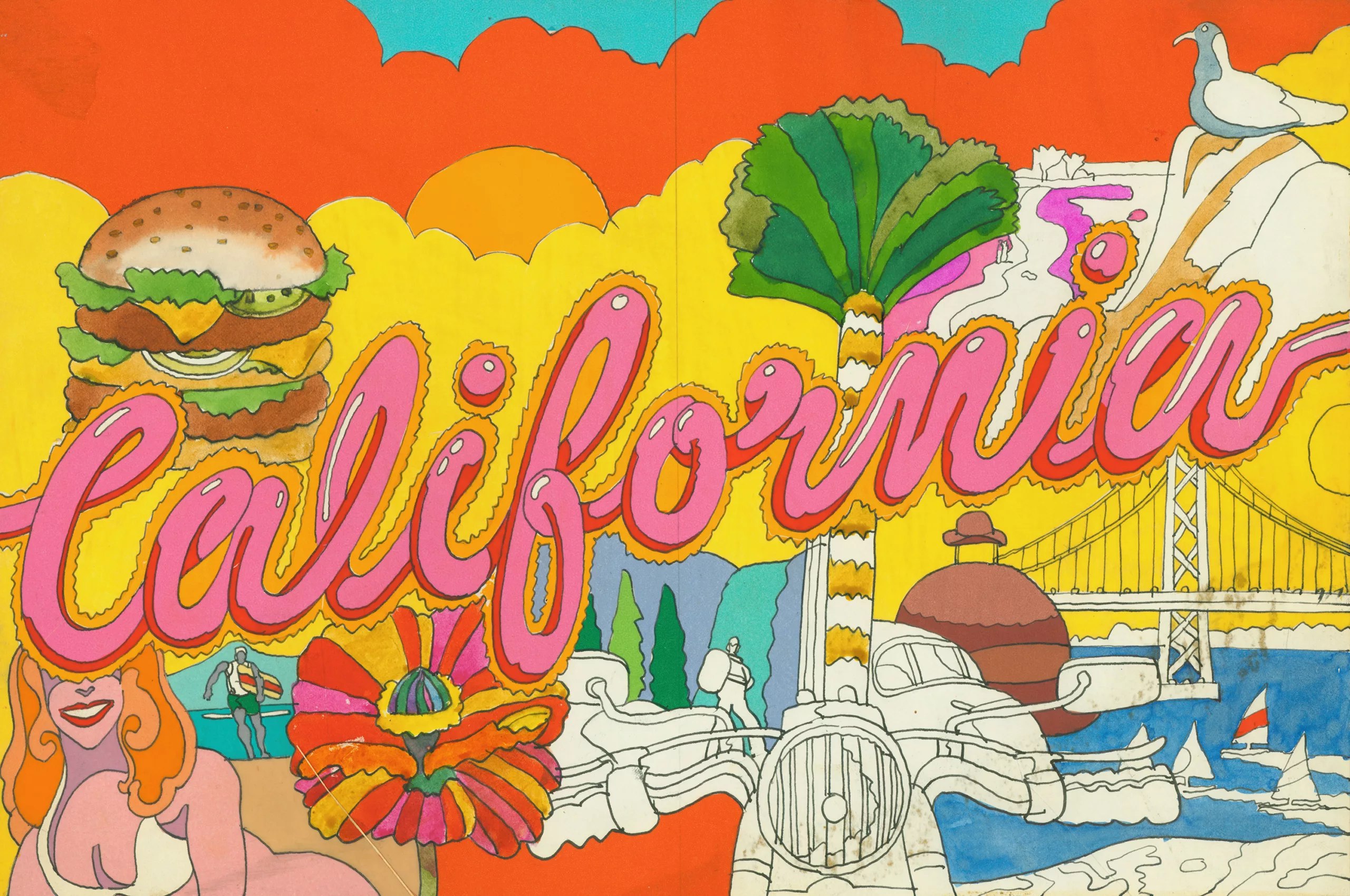
For 20 years, they hosted about 20 employees, and probably hundreds of students. The adventure seemed made to last, yet the two pillars Milton Glaser and Seymour Chwast were radically opposed in nature. Milton undertook, proposed, advanced. Chwast resisted and refused. Milton was thinking big. He was the optimistic one. He was interested in creating conditions that would generate pleasure.
In the 70s, the duo is out of breath. Though they’re in the process of becoming an institution. A retrospective is dedicated to them at the Musée des Arts Décoratifs in Paris, and then many others around the world. It’s time to stop. “We were just a media product, I couldn’t stand it”. The end of this golden age will be signed in 1974, with the discreet departure of Milton. He then created his studio Milton Glaser Inc.
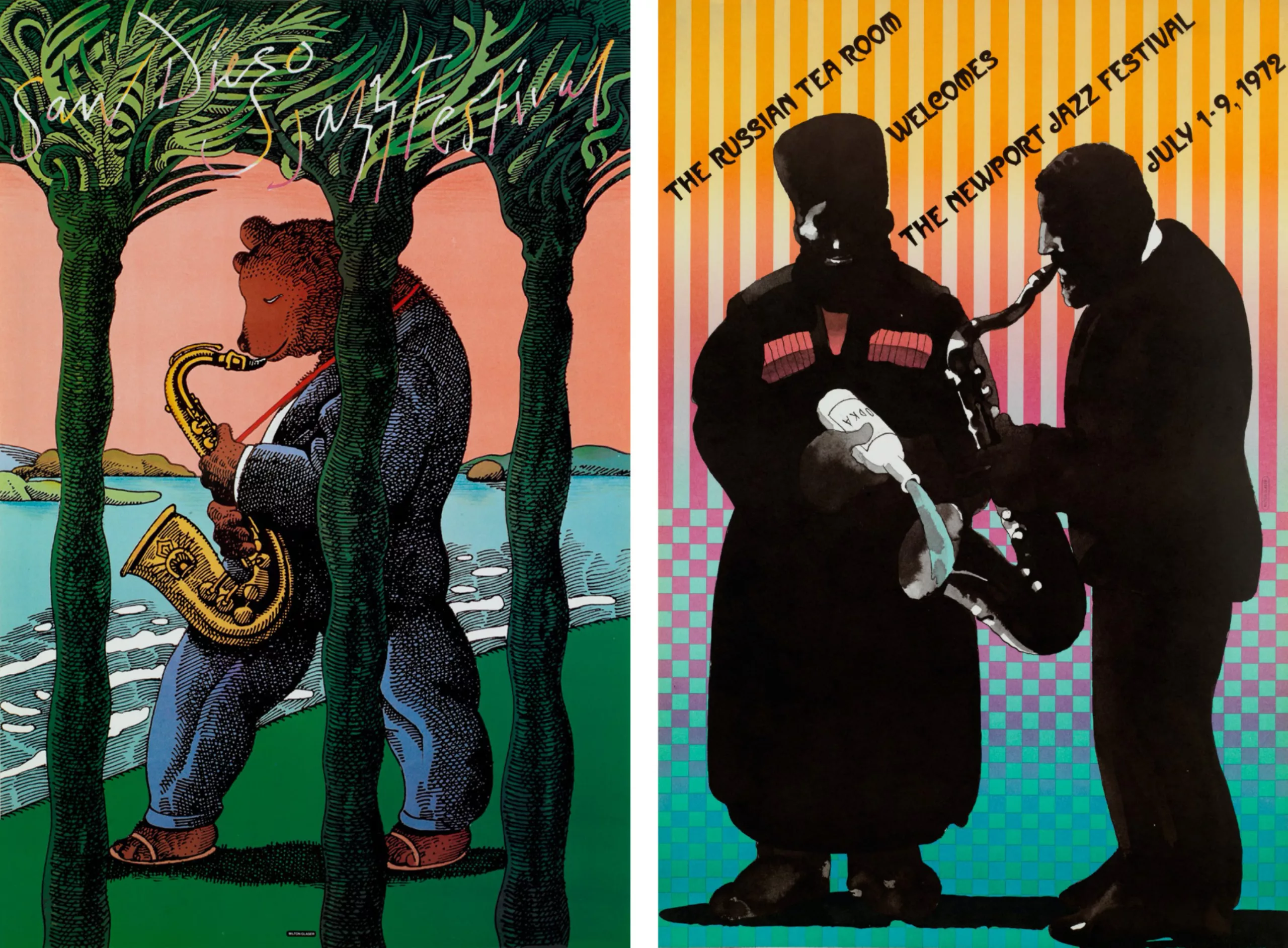
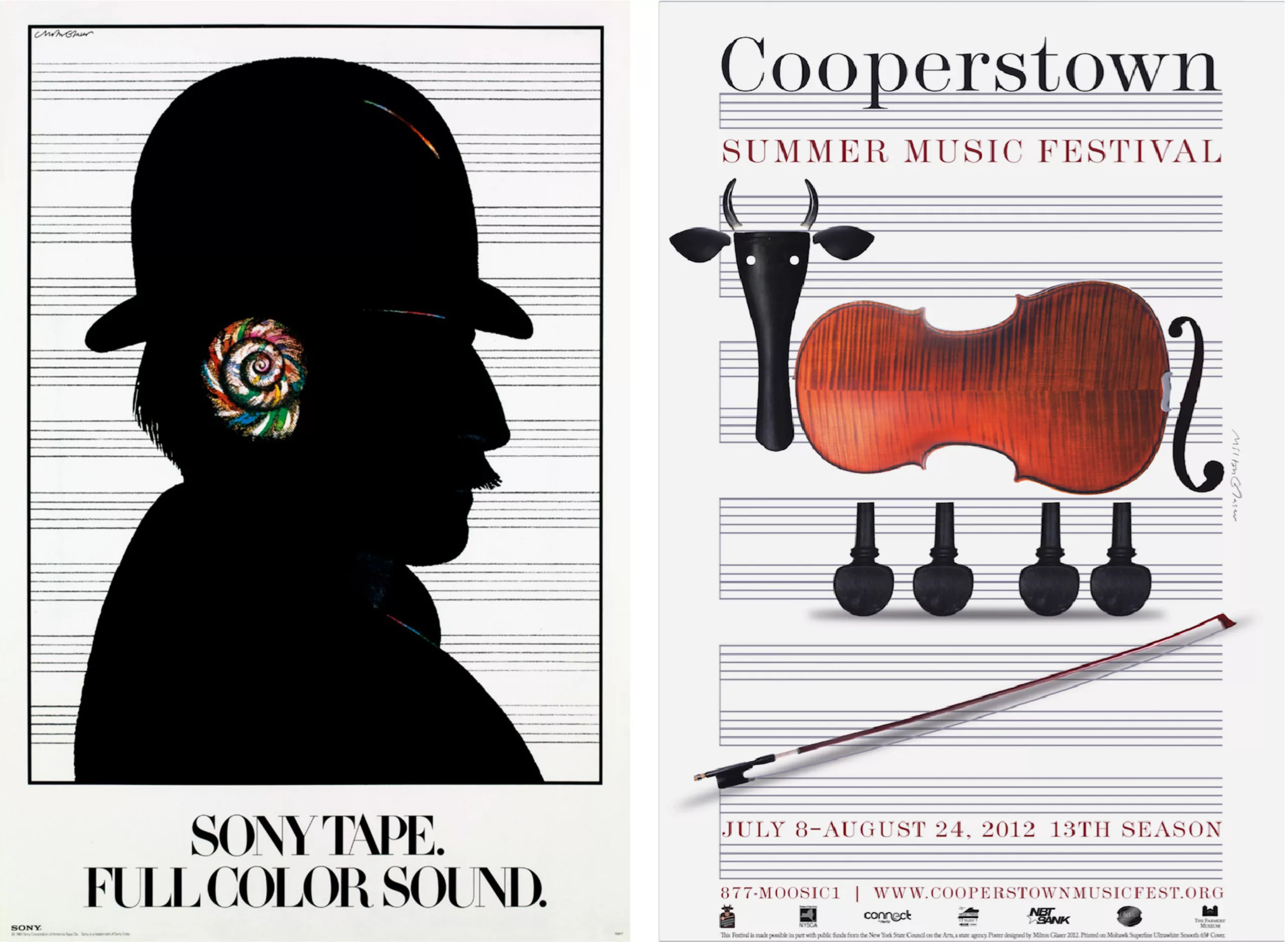
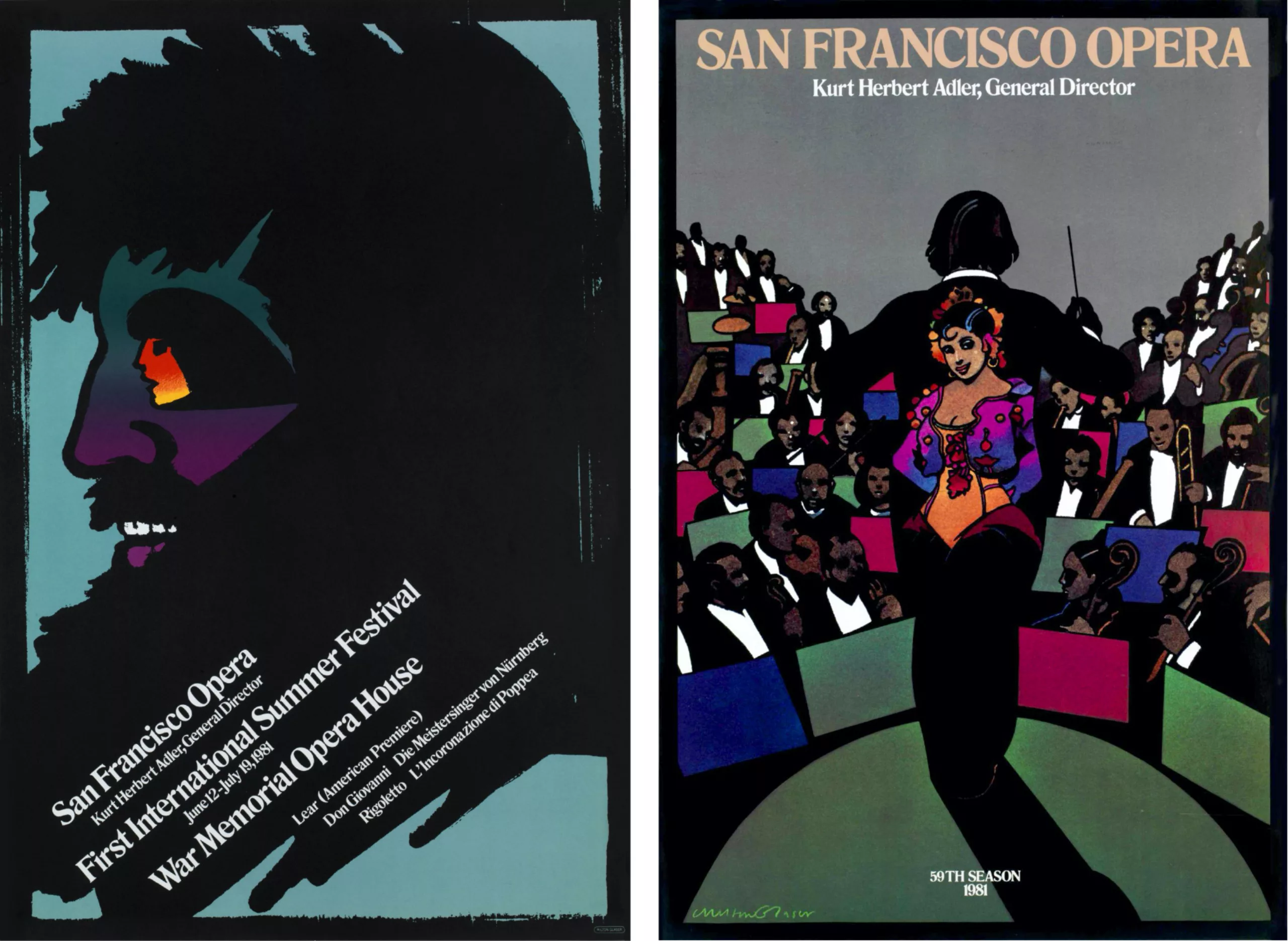
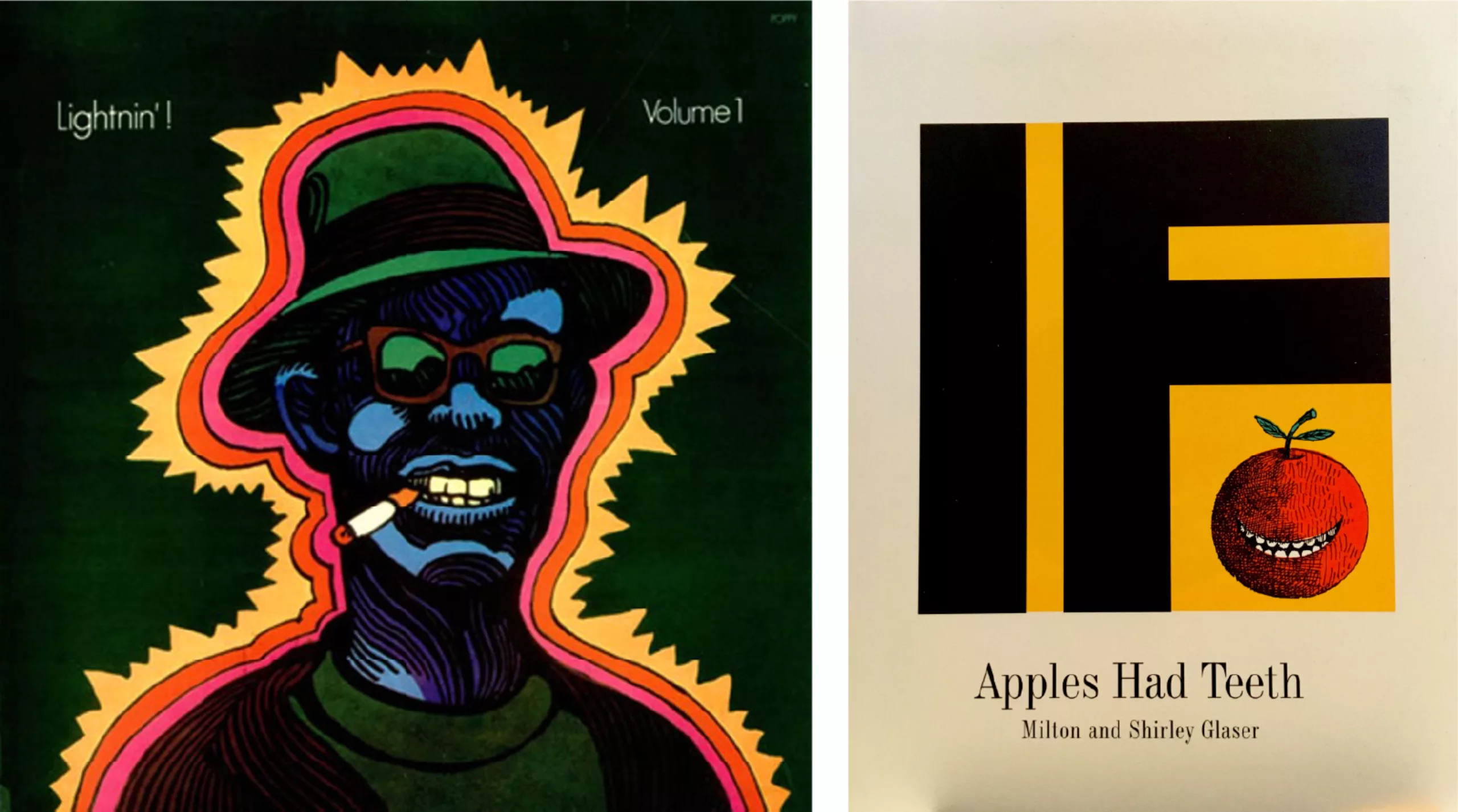
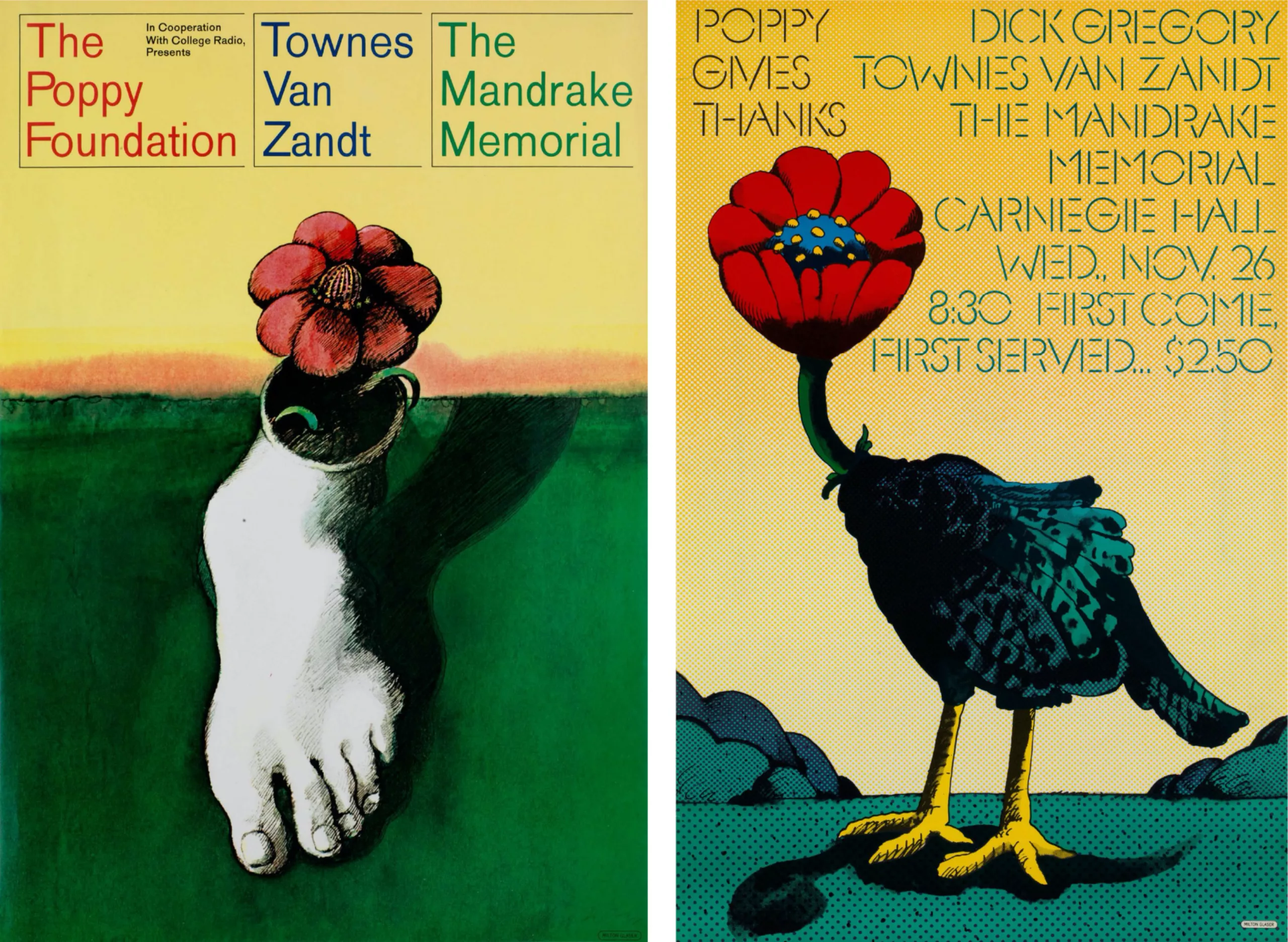
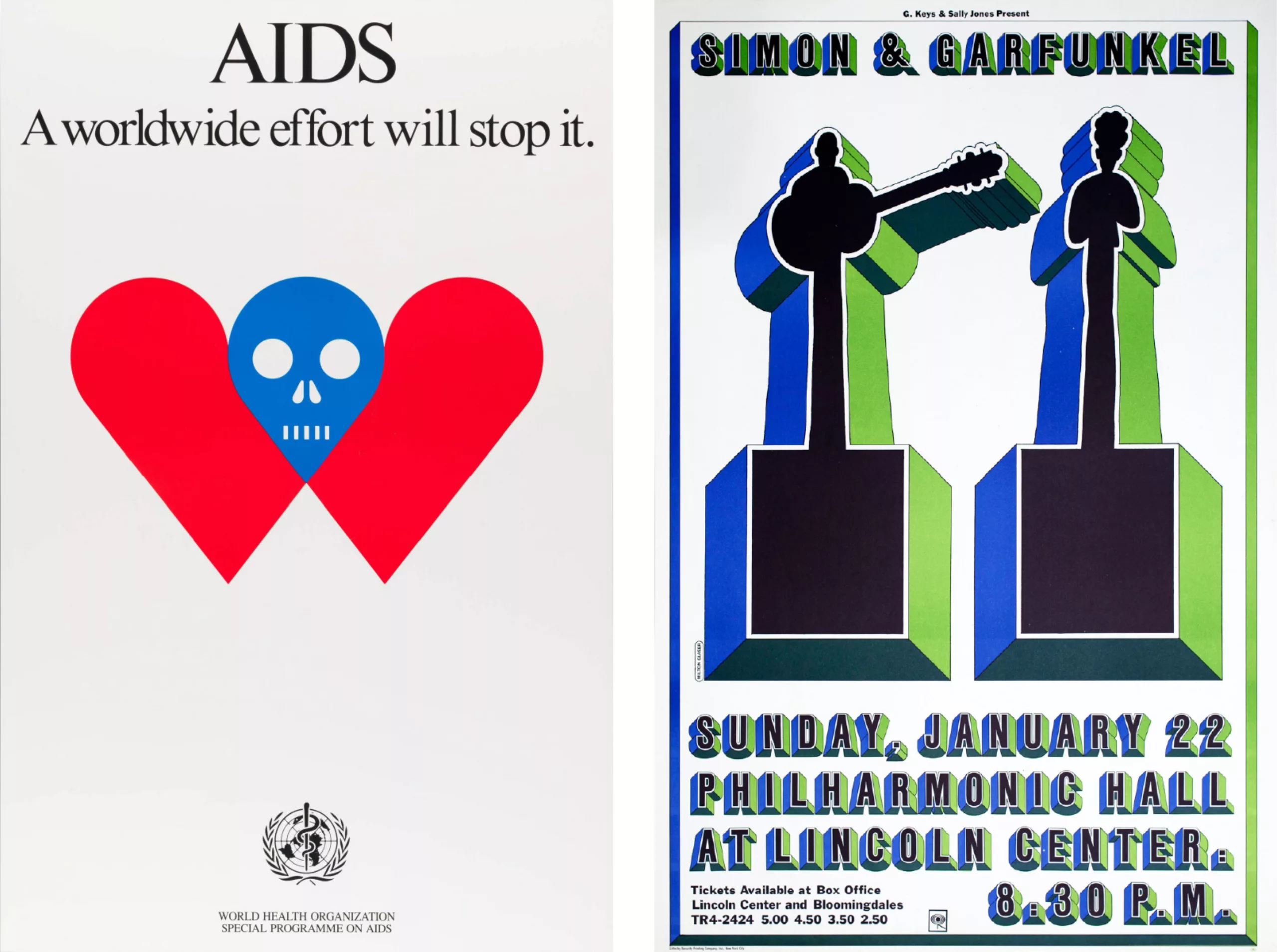
The Milton Glaser Inc.
From 1974 onwards, Milton Glaser’s work opened up to a wide range of disciplines. He abandoned independent projects for a while, and used his fame to carry out major visual identity projects, as well as architecture, signage, publishing, etc. The promotional identity for the city of New York will be his most publicized work. But he also designed interiors for a whole host of clients (hotels, shopping malls, restaurants…). For example, he will be in charge of the entire graphic and interior design program for the restaurants of the World Trade Center, with 3D typography furniture.
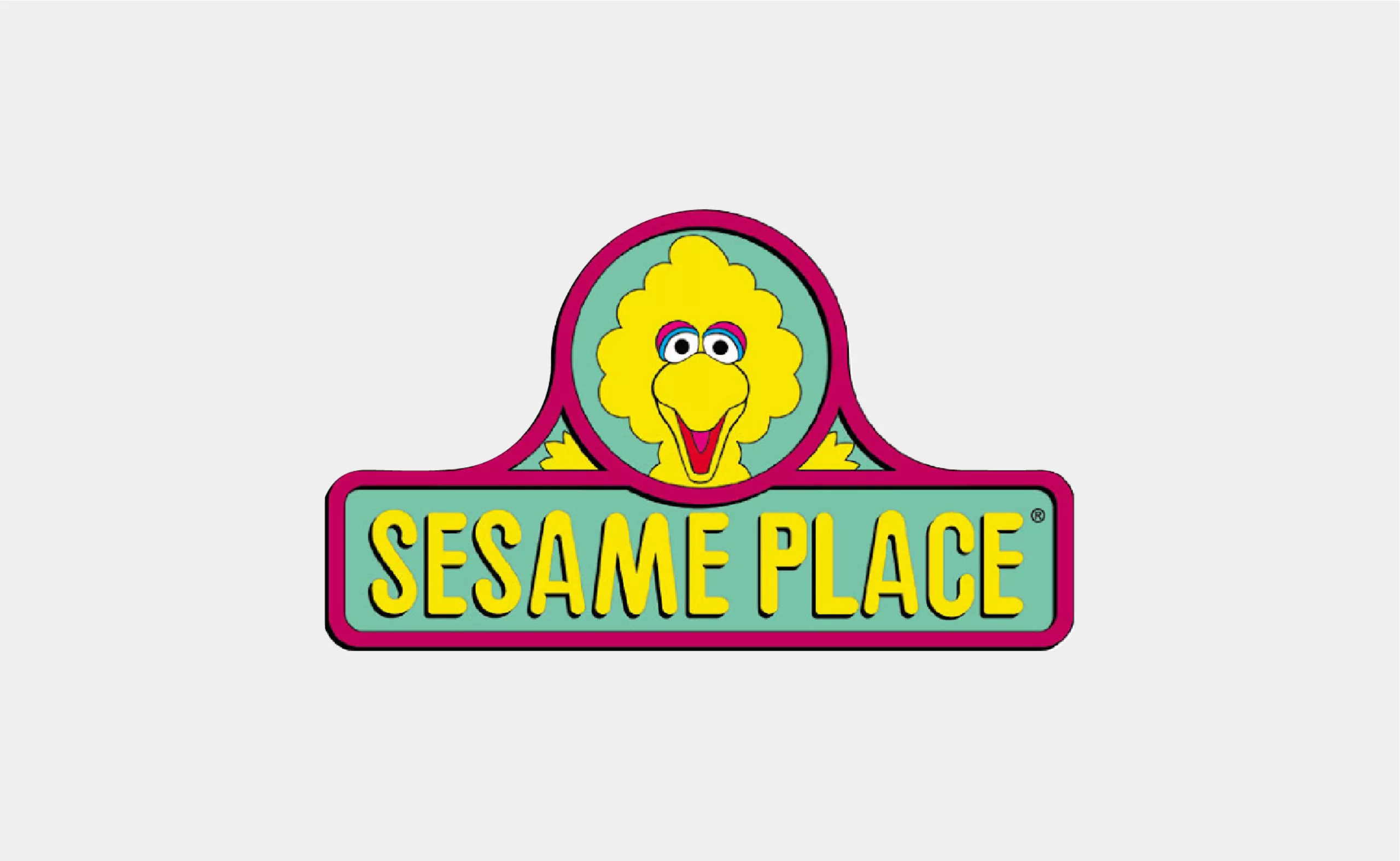
Naturally, if the concert poster remains his favourite medium, he does not exclude any subject. He conceived a number of architectural projects, including Sesame Place, an educational playground for children in Pennsylvania, from 1981 to 1983. Throughout a period of fifteen years, Milton Glaser was involved in redesigning one of America’s leading supermarket group, The Grand Union Company, a project that included all the brand identity, store architecture, packaging, and other aspects of the company’s operations.
This work is astonishingly simple, in contrast with the psychedelic effects of his early years. Nevertheless, one finds again a graphical engagement, like the red dot on the “i” that cleverly provokes our gaze, and points out these stores in Americans’ mental maps. Milton keeps his clown nose and his childlike look even when he deals with grown-up subjects.


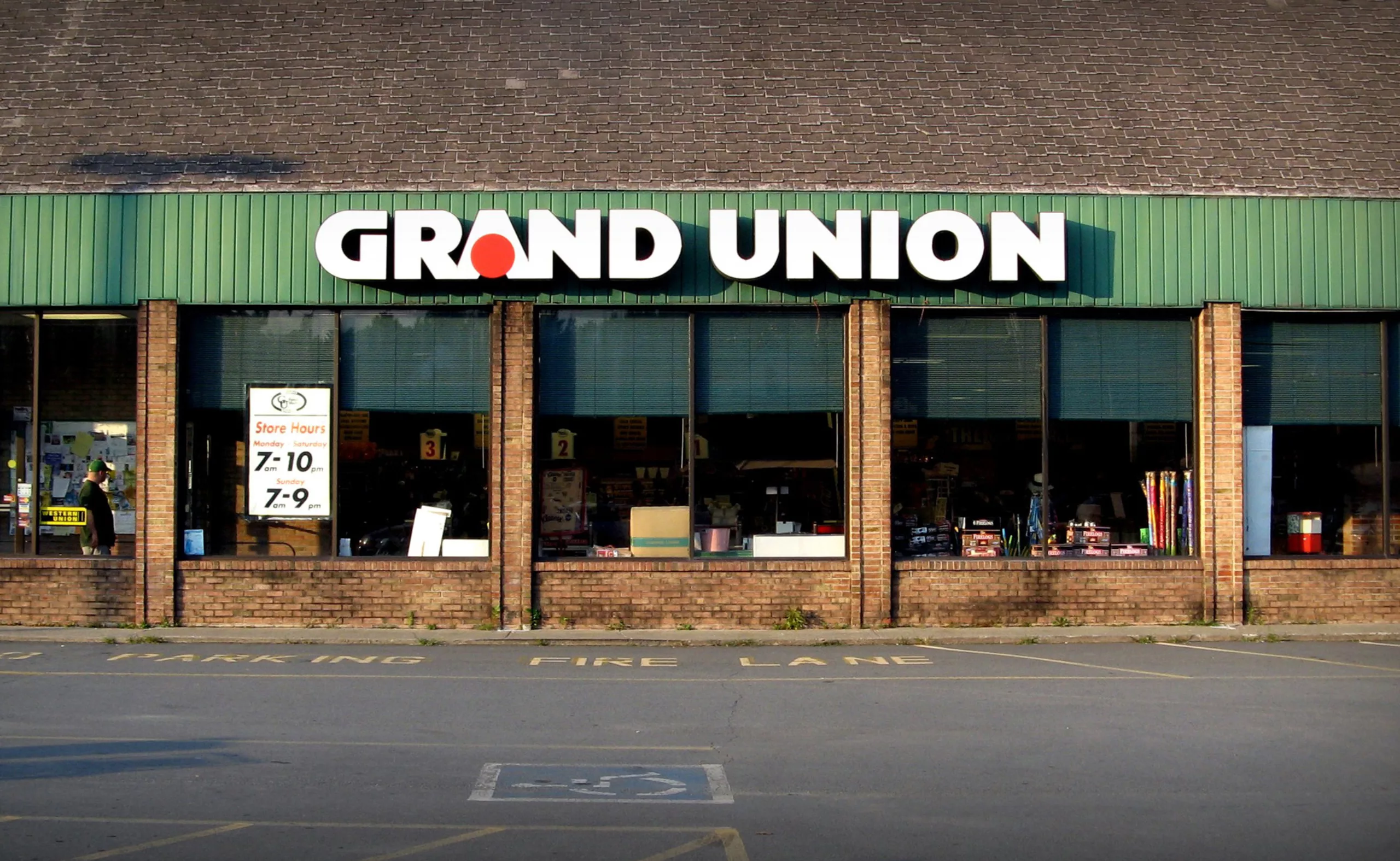
During this period, he was in charge of the stand at the Triennale di Milano 1987-88 international exhibition in Milan and of the graphic program of the Rainbow Room complexes for Rockefeller Center Management in New York. The same year, in 1987, he designed the international symbol of AIDS, the identity of DC Comics, Brooklyn Brewery, etc… We could list hundreds of projects, the list of his achievements is so long! Milton Glaser was prolific, and despite a certain slowdown from the 2010s, he was still working these last few years.
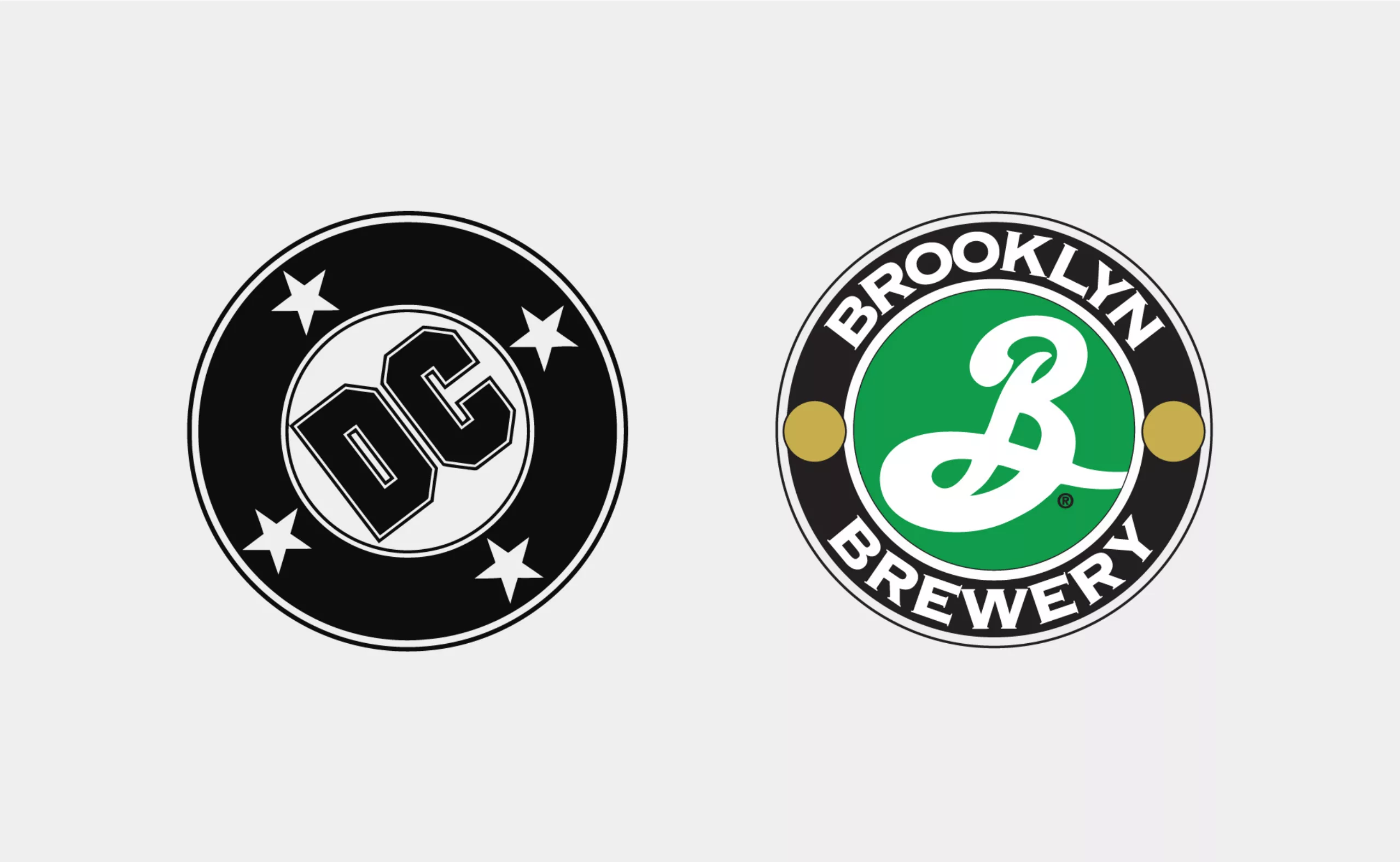
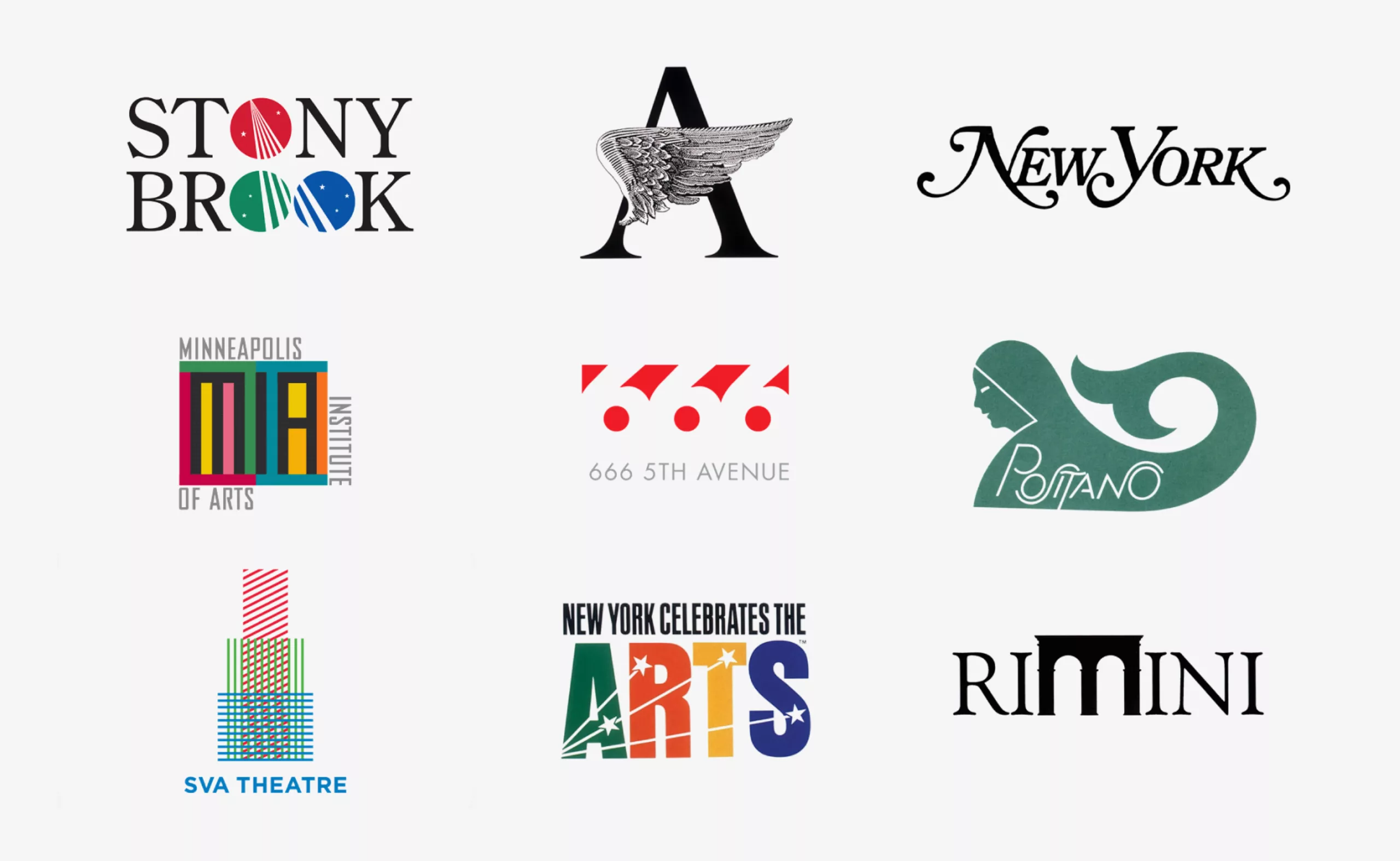
I ❤️ NY
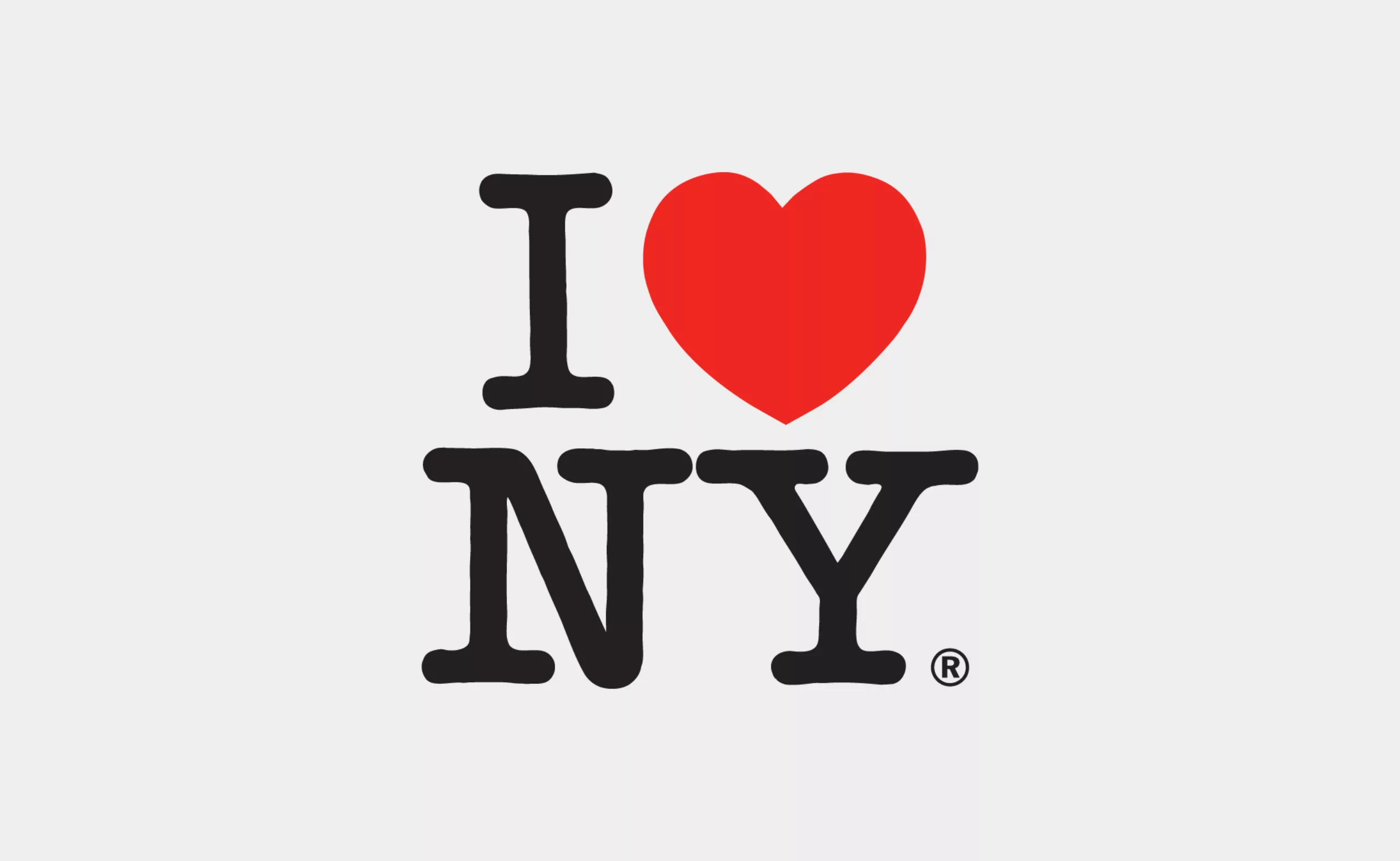
I ❤️ NY is one of the most widely distributed and imitated logos in the world. The little red heart, accompanied by the American Typewriter typeface was born in 1977 to promote the city and the state of New York. Let’s take a look at one of the major graphic creations of the last century.
New York was going through a difficult period in the 1970s. In 1975, President Ford had refused federal aid to save New York from bankruptcy, and 1977 was marked by a widespread blackout that led to widespread looting and 4,500 arrests. The tourists left Big Apple to travel elsewhere. The New York State Department of Economic Development then called on the Wells Rich Greene advertising agency to create a tourism campaign to encourage visitors to visit the city. For the record, the agency was headed by Mary Wells, the first woman to head a publicly-traded advertising company, and the highest-paid person in the industry at the time.
The agency quickly put in place several central elements of the campaign. A slogan (“I Love New York”), a jingle and a television commercial were created. All they had to do was to find the logo. That’s when Milton Glaser was called in.
During the meeting, Glaser took out of his pocket a crumpled piece of paper with a doodle he had made during the taxi ride. On the back of an envelope he had scribbled the logo we know today. He did this work entirely on a voluntary basis, and gave all the rights to the City to help revive tourism in his hometown.
He later said that inspiration may have come to him subliminally with the famous LOVE sculpture by artist Robert Indiana, whose work was then featured on millions of stamps in circulation in the USA. Nevertheless, it remains a visual rebus of obvious simplicity and universal reading. It is Milton Glaser’s Mona Lisa.
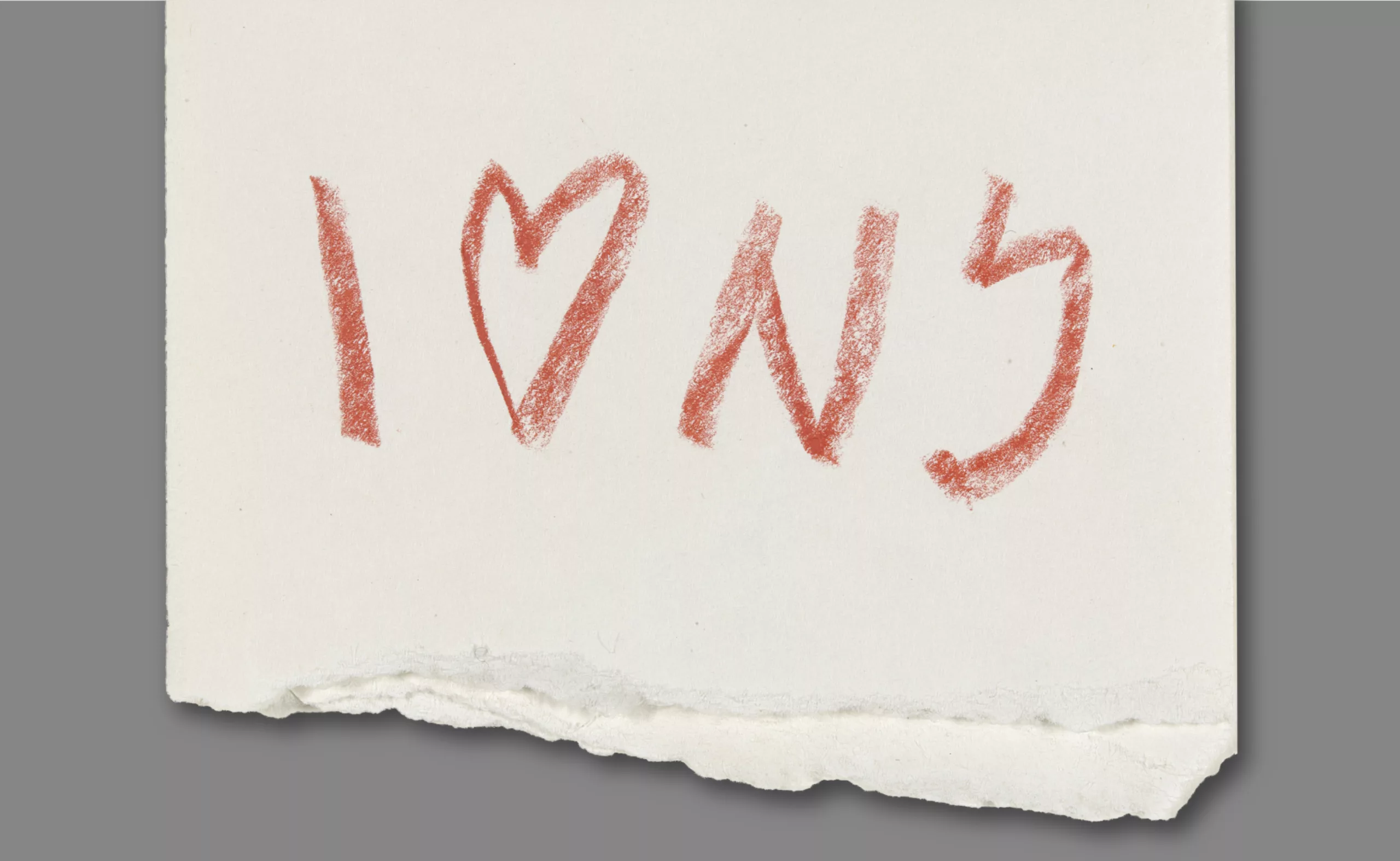
His last work : connecting people together through art
New Yorker and passionate, with a sense of duty related to his job as a designer, Milton Glaser was working on a visual to unite citizens (of NY, America, the world) during the COVID-19 pandemic. A bit like in the days of I ❤️ NY, in a difficult and frightening context, he sought of “connecting people through art“. This final project, unveiled by the NY times a few days after his death, represents the word together (together) treated in a way that visually links people (letters) together despite their differences.
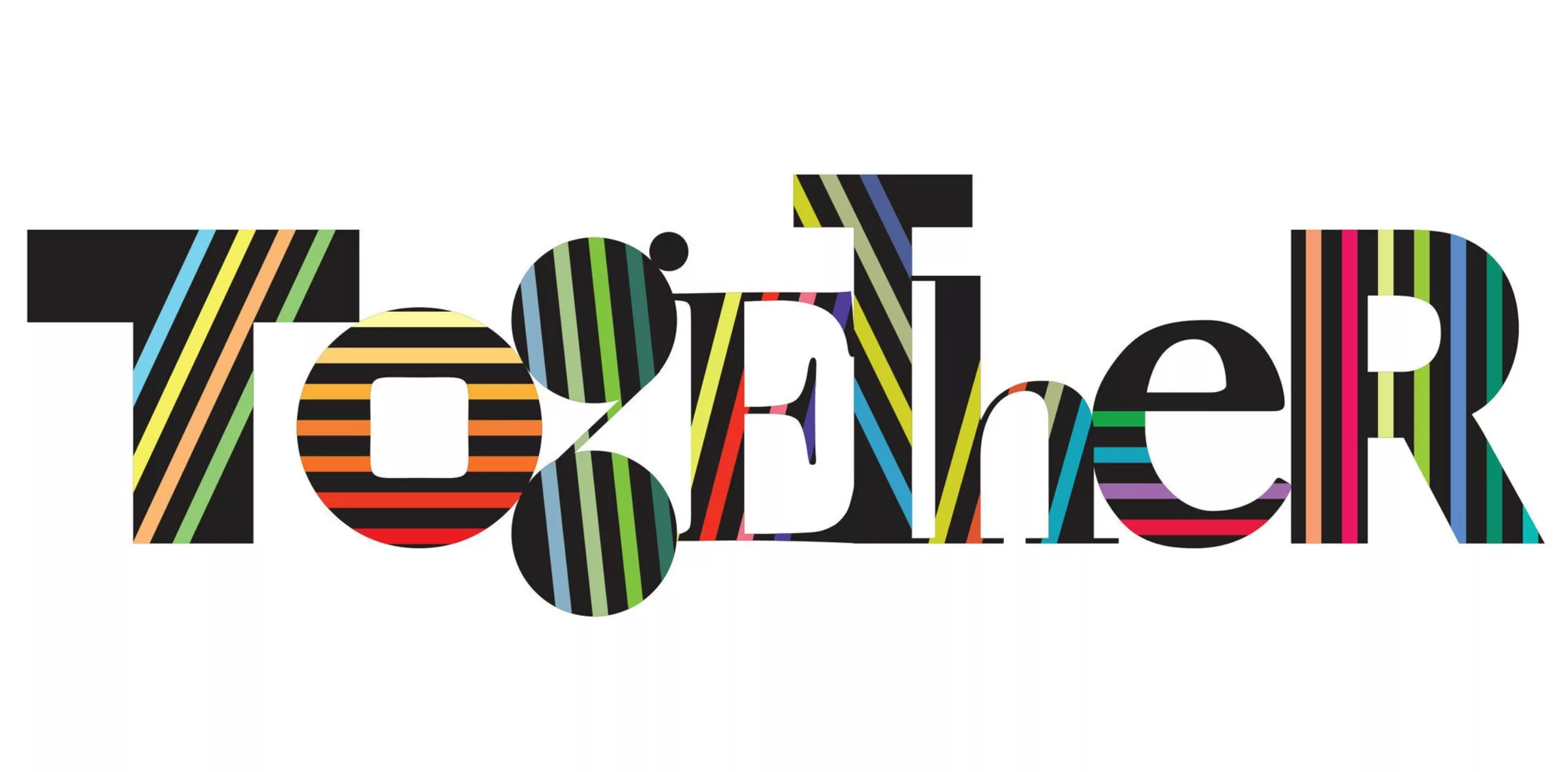
Together is a way to symbolize the sentence “we’re all in this together” heard thousands of times in the media. He hoped that one day this symbol would have just as much impact as I ❤️ NY has had since 1977, while explaining to the reporter that “after all these years, I don’t understand what it is that makes an idea compelling enough to move a person to a different perception” and make it switch from a simple marketing idea to a universal symbol.
As he said in his interview with the NY Times, “design starts with a desire to change an existing condition, but as I said, the shift (in people’s heads, editor’s note) is something you hope for, and most of the time don’t get it.”
My client is a graphic designer
A few years ago, we were having fun with customer feedback. You know how some customers have a way of burying your ideas in your head. We used the famous Bob Dylan poster as an example. Milton Glaser, phlegmatic and elegant, knew how to seduce and win the confidence of his clients to impose his ideas. He was uncompromising when necessary.
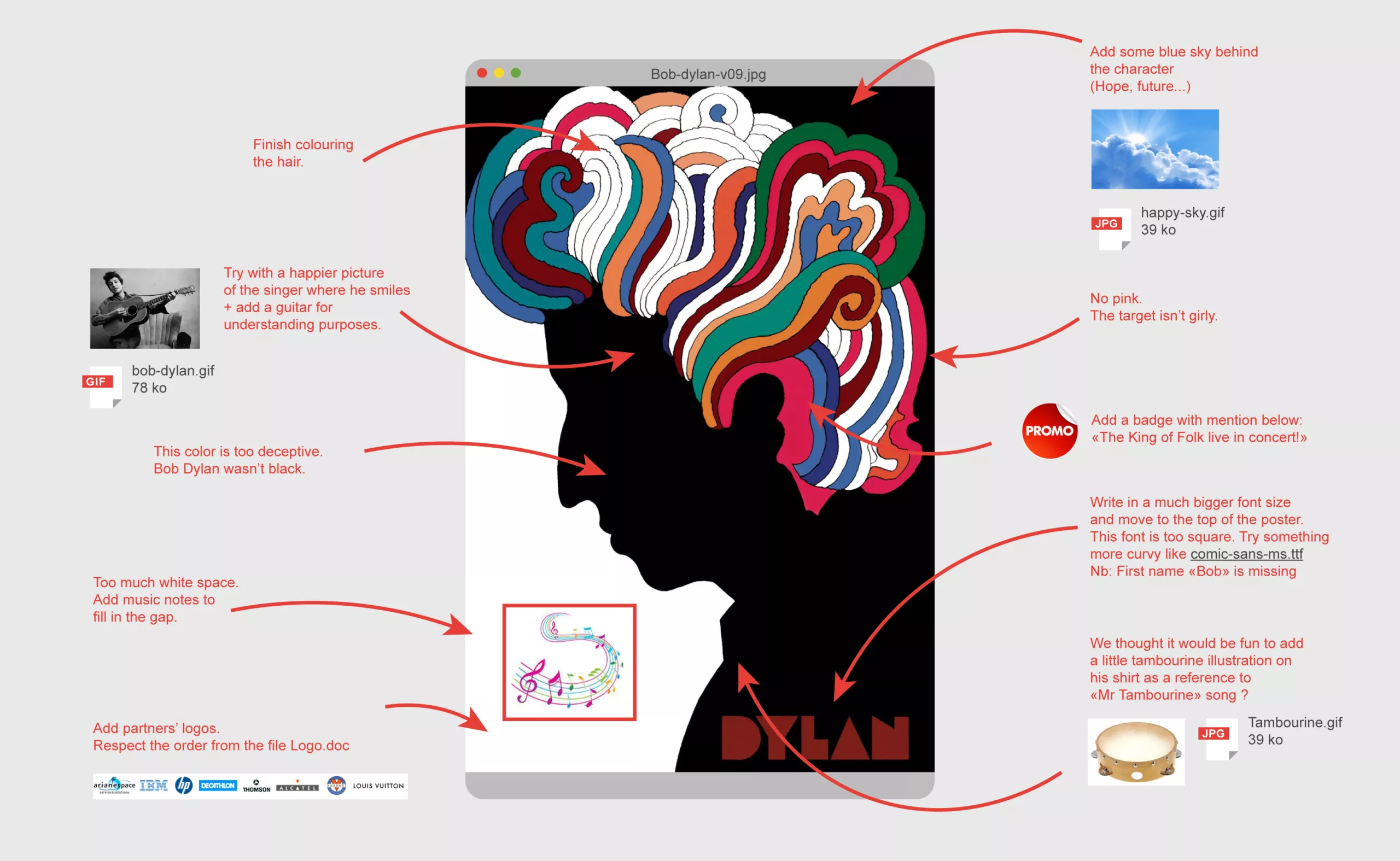
Milton – colourful humanist
One of the things he was most concerned about in today’s world was that the world of advertising and marketing never questioned the consequences of its work. He always wondered about the consequences of his work, the idea that his images could harm was distasteful to him. Moreover, he applied the Hippocratic oath (“Do no harm”) in his practice. Ultimately his images acted as drugs for the eyes and the mind.
The world is shaped by advertising, marketing and capitalism, and the idea that profitability is the heart of the matter was something he did not understand. Yet he had an immense sense of responsibility. “ There used to be room for nature, beauty and the search for positive, shared common beliefs. Now it’s about selling stuff. The only criterion for what I do is to increase sales. It’s despicable. “
He liked to repeat that in our business there are three people involved: the designer, the client and the public. None of the three must come first, especially not the designer. On the contrary, it’s the interrelationship that you have to look at, and he abhorred narcissism. The ego should never be misplaced.
His whole life was spent working. The word retirement didn’t exist in his vocabulary. “Retirement is so cold, it’s an illusion created by capitalism, which means that as soon as you need more young people, you can exploit them more easily and pay less money, and then get rid of the elderly. Our vision of retirement is ridiculous.”
Retirement at 65? For Milton it was a pathetic idea, at a time when he had never felt more useful to society. What he believed there should be is a transition from an active working life to a shared working life, so that all those who retire can be involved in the community, to share their knowledge.
He was quick to put his speech into perspective, thinking of the many employees or workers having spent a desperate working life, and who despise their work. The next, he could spit in the face of those for whom retirement rhymes with “going fishing or watching TV”. For him, this type of retirement made no sense, except that it was a step in the direction of a society that capitalized on the value of man.
“If I ever retire, I hope I die the next day. ”
Since June 26th, Milton has finally retired. We wish him well, and we thank him for all that he has given us.
